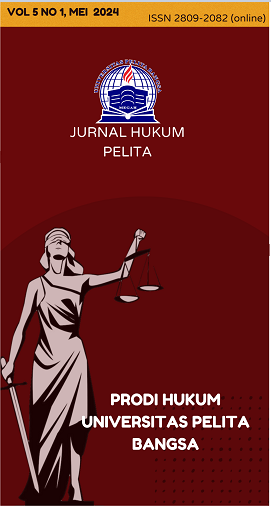Pemberantasan Dan Pencegahan Oligopoli dan Persekongkolan Oleh KPPU (Studi Kasus PT.Telekomumikasi Indonesia)
DOI:
https://doi.org/10.37366/jh.v5i1.3970Keywords:
Monopoli, KPPU, PenyelesaianAbstract
The Indonesian Telecommunications Industry Development The Republic of Indonesian government launched the program has a noble goal of ensuring that telecommunications infrastructure reaches all parts of Indonesia. To achieve this goal, several telecommunications companies joined the Parapa Ring consortium and organized the Parapa Ring project which aims to expand telecommunications networks throughout Indonesia. In handling bid manipulation cases, the Komisi Pengawasan Persaingan Usaha Perusahaan (KPPU) applies two main principles, namely the principle of per se illegality and the principle of reasonableness. However, the application of these principles is often challenged and flawed, as evidenced by Decision No. 36/KPPU-L/2010 on alleged discriminatory practices and collusion in the tender for the procurement of the Palapa Ring Mataram-Kupang cable system project. The doctrine of unlawfulness states that a particular agreement or business activity is unlawful if there is no further evidence of its effects. On the other hand, the rule of reason requires further evidence to determine whether an action inhibits or promotes competition. In a tender conspiracy, KPPU applies the rule of reason because it needs to be proven in more depth the effect of the act on business competition. Decision Number 36/KPPU-L/2010 highlights the misapplication of the principle of reason.






